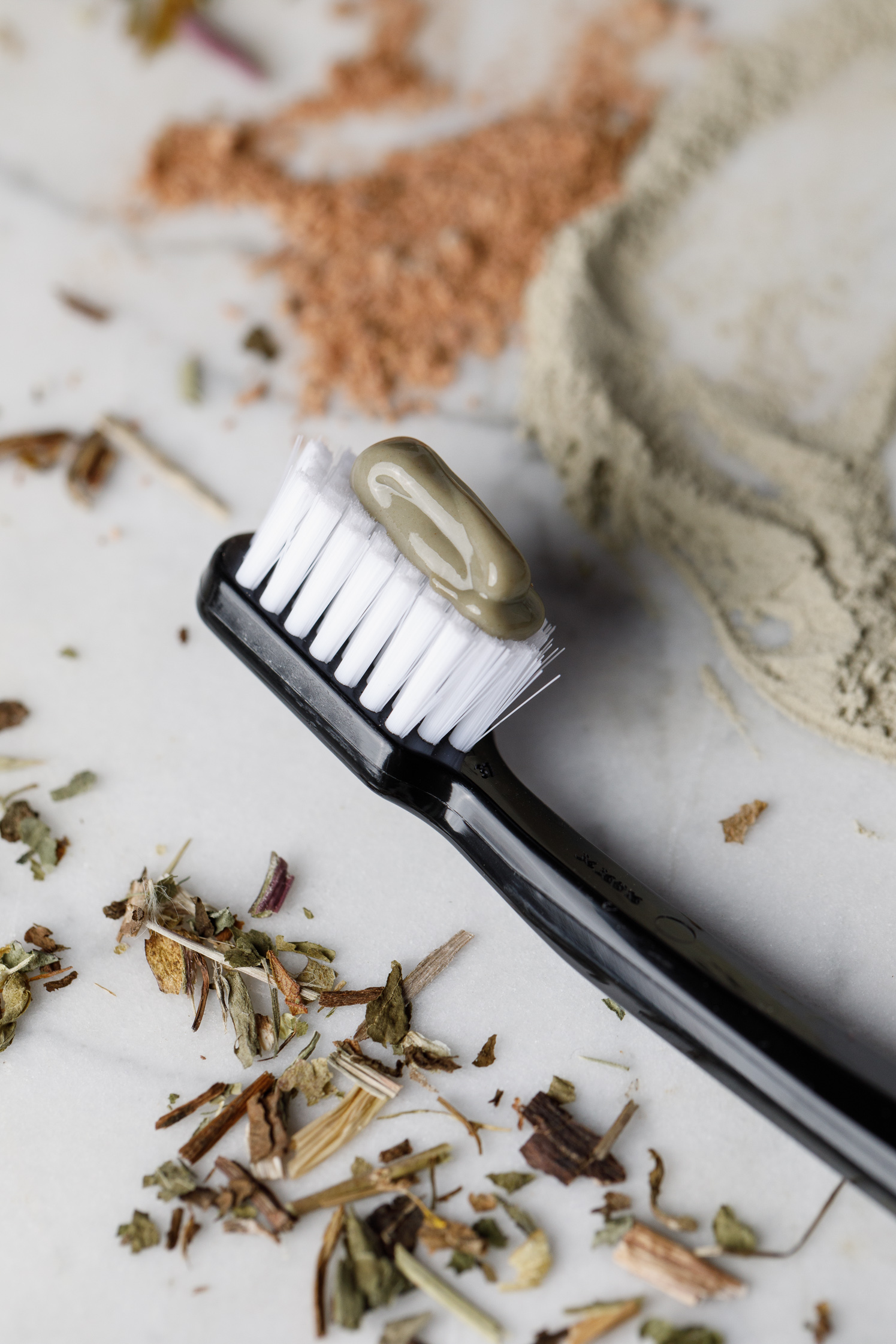Dr Britta Rösch, from Schwarzenberg in the Erzgebirge mountains, has been a dentist for around 25 years and established her natural personal care brand “roesch” in 2018. She has developed an innovative oral care range without artificial ingredients. Every tube is 100 per cent natural and 100 per cent produced in the Erzgebirge mountains.
We spoke to Dr Britta Rösch
When and where did you come up with the idea of developing this toothpaste?
I’ve always been interested in alternative medicine. I’ve noted what grows in the countryside and seen what effects the various herbs have ever since I was young. I’ve made my own tinctures and salves from these herbs, especially for my children, for minor illnesses, bumps and scrapes. Then, in 2015, I had the idea of developing a completely new dental care concept. So I started to experiment with my herbs and other substances to develop a product for everyone.

What ingredients did you choose and why?
It’s based on a blend of different mineral clays that I selected for their fineness. The grain size was chosen to clean the teeth thoroughly without damaging them. It also contains coconut oil, which is very good for the teeth. I would have loved to use a locally-produced oil, but up to now the available processing technology means that’s not possible. The plant minerals we use can also be found in the human body. They’re looking for something to lock onto, you might say. If the minerals get all around the teeth, they can settle wherever the tooth needs them. Any unused minerals are absorbed by the body, where they are also beneficial. Other ingredients include several herbs and plants that can still be found in the Erzgebirge mountains: oregano, dandelion, yarrow and pellitory. These herbs and their healing properties have been valued since Hildegard von Bingen’s day. Why shouldn’t we go back to using them? I believe that we should preserve these ancient medical traditions.
How important is sustainability to you, personally?
If you hadn’t considered it already, when you have children you start to think about what kind of planet you want to leave to them and their children. I believe in sensible sustainability. I’m interested in a healthy and careful lifestyle, being aware of what I take from nature and what I give back.
Your toothpaste is described as organic and ecological. Is the packaging also made from sustainable materials?
Yes, the tube is predominantly made from a plastic produced using granules of sugar cane waste. This waste comes from Brazil. I’m still looking for a European alternative. Apart from that, I’m working closely with waste management company Kunststoffschmiede in Dresden, who make the WAYT! tube squeezer from returned empty toothpaste tubes, for example.
Where is “WAYT?” made and do you take care to ensure fair working conditions?
We’re a six-strong team and all have our roots in the Erzgebirge mountains. We have an agricultural engineer/alternative practitioner on board; one colleague is responsible for shipping, another for social media, and my main job is still my dental practice. We do all our manufacturing and packaging in the Erzgebirge mountains.
How long did it take you from coming up with the original concept to having a finished product?
About three years.








